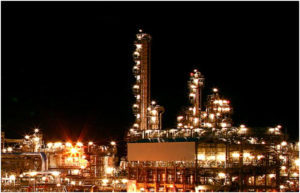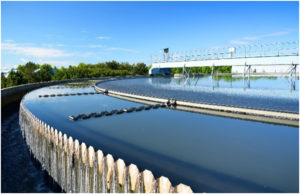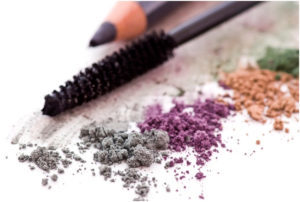APPLICATIONS
Pulp and Paper industry:

Textile industry:

Chemical Industry:
Hydrogen Peroxide is used for manufacturing chemicals such as Sodium Percarbonate and Sodium Perborate, which are in turn used for the bleaching action of laundry detergents. Hydrogen Peroxide is also used in the production of certain organic peroxides like dibenzoyl peroxide. These organic peroxides are used to treat acnes, are used in polymerisation reactions and as a flour bleaching agent. They can even be used to produce peroxy acids such as peracetic acid and meta chloroperoxybenzoic acid.

Waste water treatment:
Hydrogen peroxide is very powerful oxidizing agent in water treatment it leaves no residues like other chemicals. Hydrogen Peroxide breaks into hydrogen and oxygen Hydrogen peroxide is used in waste water treatment processes to remove organic impurities. Hydrogen Peroxide is able to remove organic contaminants such as aromatic or halogenated compounds, which are otherwise very difficult to remove. Hydrogen Peroxide can also oxidise sulphur based compounds that are present in the waste, thus reducing the foul odour.

Cosmetic applications:
Hydrogen peroxide is useful in hair care products, hair dyes, conditioner, shampoos, hair bleaches and tooth whitening products. Hydrogen Peroxide is used as an antiseptic agent. Hydrogen peroxide in cosmetic can be used as a oxidizing and antimicrobial agent which inhibits the growth of microorganism. During its use in hair dye it forms dyestuffs in oxidative hair dyeing. Hydrogen peroxide oxygenate stain in teeth cleaning. Diluted hydrogen peroxide is mixed with ammonium hydroxide and used in the bleaching of hair. It is also used in the whitening of teeth and is often used in homemade toothpastes. It is also used to treat acne.

Medical applications:
Hydrogen peroxide is used as a disinfectant and is eco-friendly, when compared to other chlorine based bleaches. Hydrogen Peroxide is also recognised by the FDA as a safe antimicrobial agent that can be used to disinfect various surfaces. Practitioners of alternative medicine use hydrogen peroxide for the treatment of various conditions including emphysema, influenza, AIDS and cancer. However, large doses of hydrogen peroxide can result in blistering and irritation, diarrhoea, abdominal pain and vomiting. Hence, the treatment is not approved by the US FDA.

Other important applications:
Hydrogen Peroxide is used as a propellant in rockets. It can either be used as a monopropellant or as the oxidiser component of a bipropellant rocket. It is also used to make organic peroxide based explosives, for example, acetone peroxide. However, these explosives degrade very soon, hence cannot be used for commercial applications. It is used in horticulture, in extremely diluted forms, for watering plants. It is believed to enhance the development of the plant’s roots and prevents the rotting of roots by supplying enough oxygen for the growth of cells. Another application of hydrogen peroxide is in providing aeration for fish. The mechanism behind the use of hydrogen peroxide is its decomposition when exposed to catalysts such as manganese dioxide, thus releasing oxygen.
